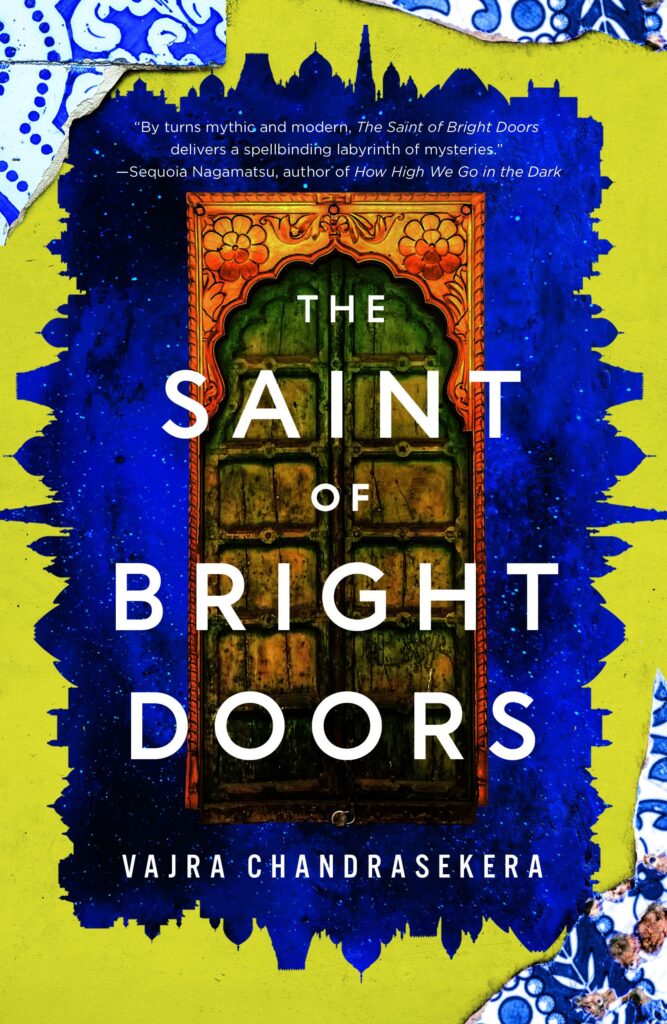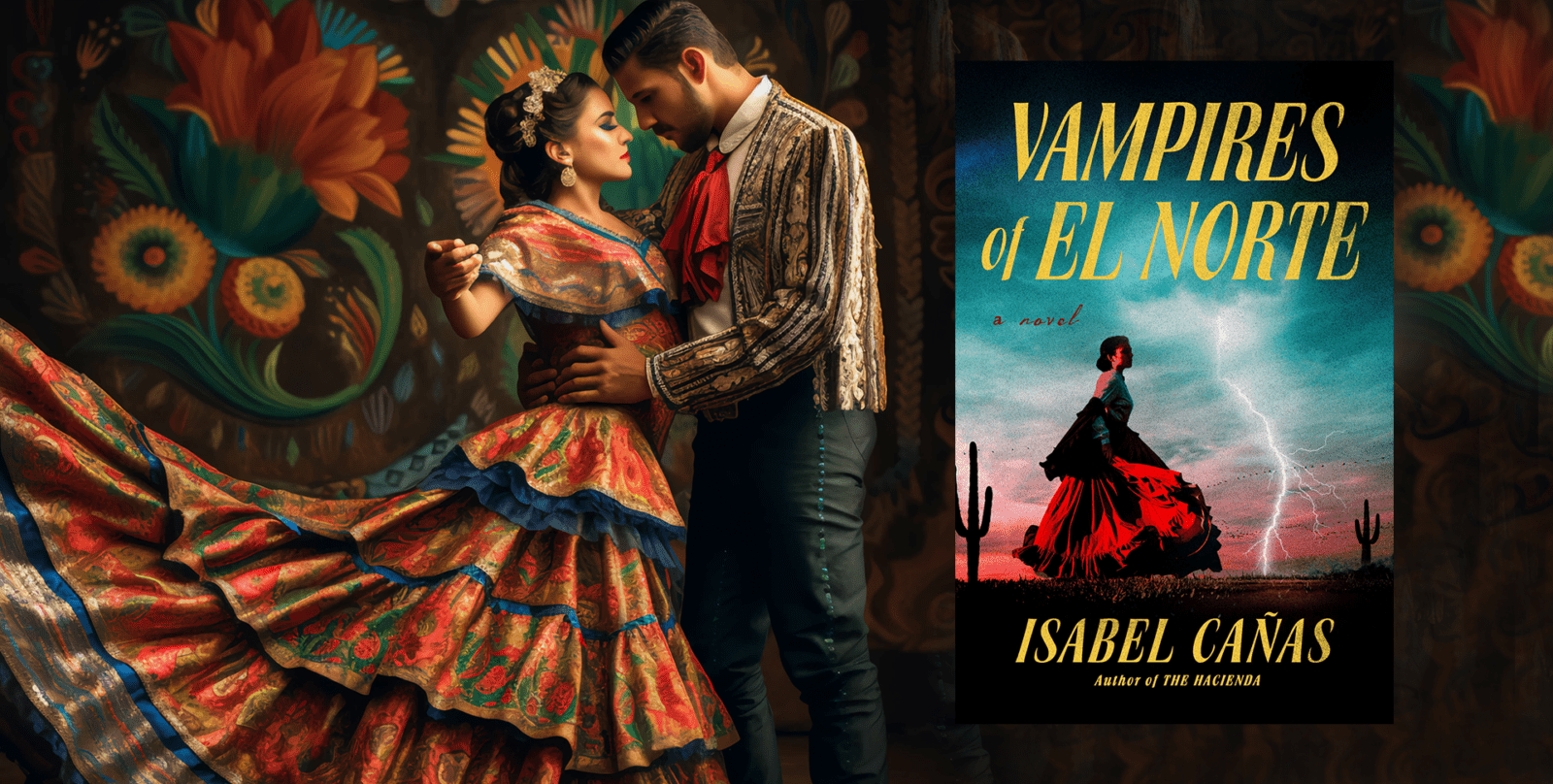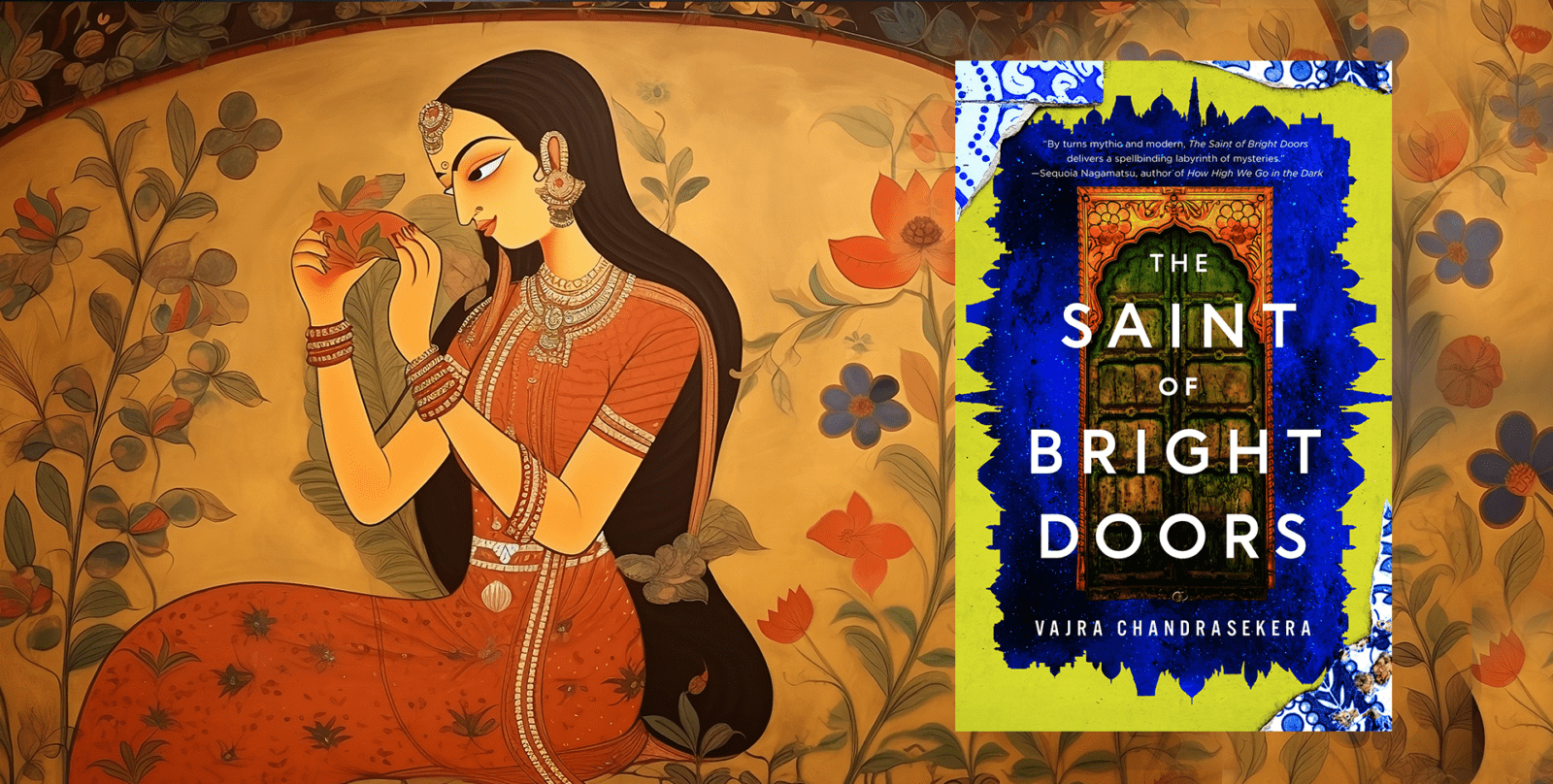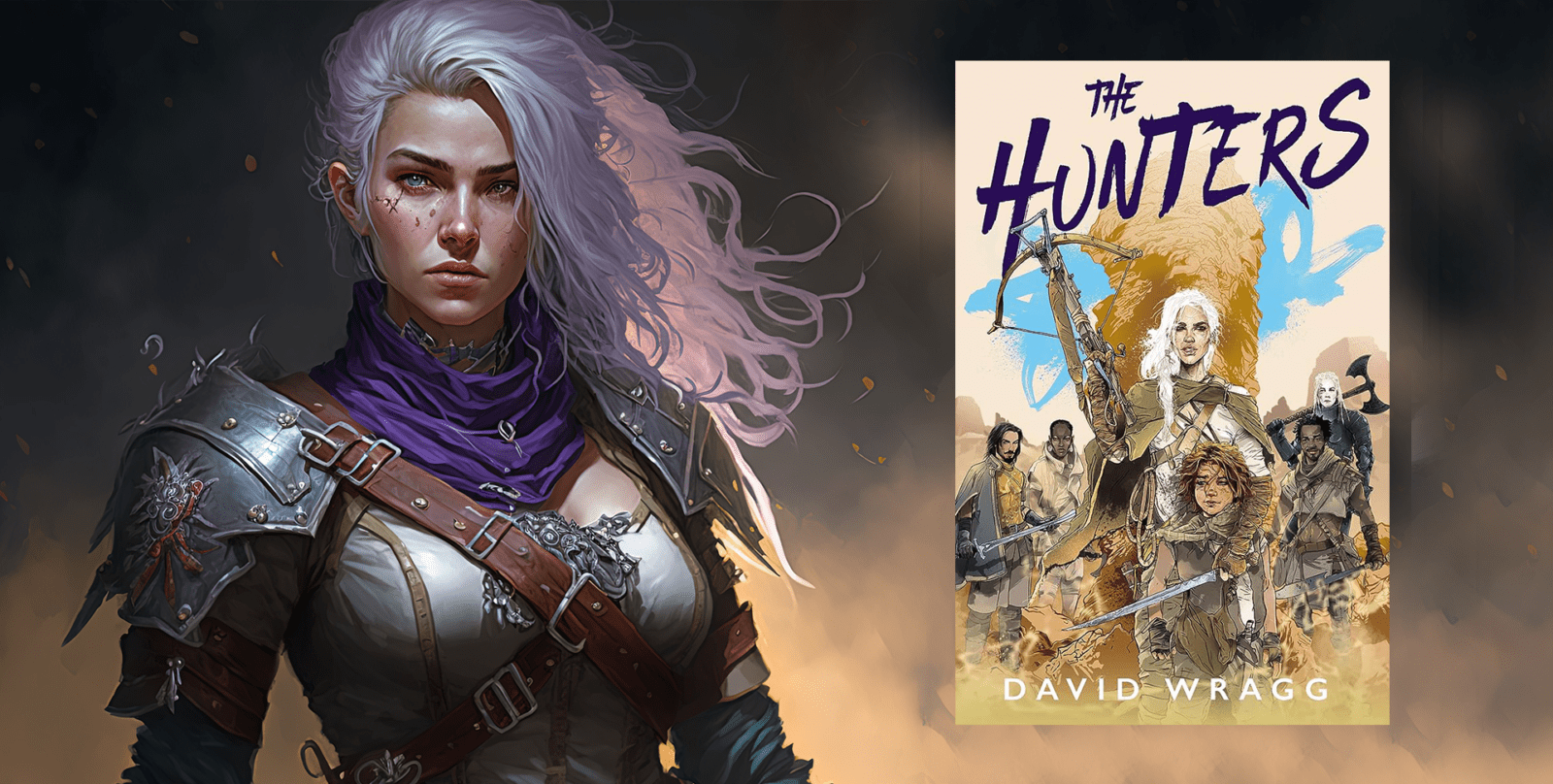Introduction:
Fetter was raised to kill, honed as a knife to cut down his sainted father. This gave him plenty to talk about in therapy.
He walked among invisible devils and anti-gods that mock the mortal form. He learned a lethal catechism, lost his shadow, and gained a habit for secrecy. After a blood-soaked childhood, Fetter escaped his rural hometown for the big city, and fell into a broader world where divine destinies are a dime a dozen.
Everything in Luriat is more than it seems. Group therapy is recruitment for a revolutionary cadre. Junk email hints at the arrival of a god. Every door is laden with potential, and once closed may never open again. The city is scattered with Bright Doors, looming portals through which a cold wind blows. In this unknowable metropolis, Fetter will discover what kind of man he is, and his discovery will rewrite the world.
Review:
The Saint of Bright Doors by Vajra Chandrasekera is one of the weirdest but brilliant books I’ve read in 2023. A lot of western people who read this might not realize that Vajra is actually doing something extremely controversial being a Sri Lankan Buddhist. This story is about Lord Gautham Buddha’s son Rahula, English Translation being Fetter (Lord Buddha named him so, considering him to be the very thing that would prevent him from attaining enlightenment, the very day Rahula was born before abandoning him and his wife) and Lord Buddha’s wife Princess Yashodara, in a reimagined fantasy setting. Sri Lanka being mainly a Buddhist country filled with Buddhist extremists, I wonder how well this book was accepted there. However, being a half Sri Lankan who has no interest in religions whatsoever I actually really enjoyed The Saint of Bright Doors which questioned and delved deep into Lord Buddha’s story that I too had.
The construction of the world is impressive and bewildering, just like the intricate South Asian mythology that forms the foundation of it all. In this fantasy world there is a realm of higher existence and a realm of demons, (which is extremely similar to Buddhist heaven and hell, for lack of better words) and Luriat presents ancient South Asian social hierarchies and their violent persecutions toward lower casts, captivating its rich and vibrant tapestry. The author’s cultural background imbues the narrative with palpable echoes of both religious devotion and communal structures.
In all honestly, I feel this would be a difficult book to follow if you don’t have a thorough understanding of Buddhism and it’s origin story and how powerful as a religion it is Sri Lanka. However even if you had an understanding of Buddhism The Saint of Bright Doors still defies predictability, leading readers into territory where full comprehension is elusive. Explanations are sparse, and even the ones provided prove challenging to fully comprehend. You have to just drift along with the narrative, akin to how Fetter navigates through the story.
I loved how Vajra presented Princess Yashodara in this book and how he integrated Sri Lankan Queen Kuweni’s story into Yashodara’s. While historical records acknowledge Princess Yashodara as a royal offspring, insights into her formative years and her trajectory subsequent to Lord Buddha’s enlightenment remain scant. (She became a Buddhist bhikkhuni, a female monastic, and attaining enlightenment herself, that much we know). Queen Kuweni, on the other hand was a Sri Lankan Raksha tribal princess who fell in love with the exiled South Indian Prince Vijaya. Their love story is akin to Romeo and Juliet in Sri Lanka because it ends up in tragedy. In order to gain power in Sri Lanka he marries princess Kuweni (who is disowned by her people because of this) but once he establishes himself as the king, he marries a “proper” South Indian Princess and discards Kuweni and their two children. Heartbroken and nowhere to turn to (as her people no longer considers her their own) she jumps to her death from a cliff or in some cases said to be have been killed by the Rakshas suspecting her to be a spy. This is the story Vajra has masterfully integrated into Princess Yashodara’s story, making her seem an evil woman hell bent on killing her former husband. I mean what woman wouldn’t? lol
Fetter’s character was meticulously molded, encapsulating his profound perplexity stemming from the startling revelation of being groomed by his own mother to potentially assassinate his father. His heartrending sense of abandonment, originating from the lack of nurturing from both parental figures, elicited a profoundly touching emotional response.
Fetter, also known as Rahula, held the potential to ascend as the next monarch in a potent Indian realm, considering that Lord Buddha, or Prince Gautama, had he not forsaken his princely role, would have assumed the throne. Furthermore, if Fetter was indeed the progeny of Princess Kuweni, he could have held leadership over one of the most influential clans in Sri Lanka. Regrettably, both these prospects were snatched away due to the actions of his parents. Vajra adeptly conveyed Fetter’s complex sentiments tied to his status as the “unchosen,” a theme that resonates strongly.
My only qualm about this book was that at times I felt bored and the pacing felt choppy and slow.
Other than that, I found immense pleasure in reading The Saint of Bright Doors. Its refreshing originality stood out as a source of great satisfaction and being an American Sri Lankan I felt connected and represented in The Saint of Bright Doors.
Rating:

Book Cover






